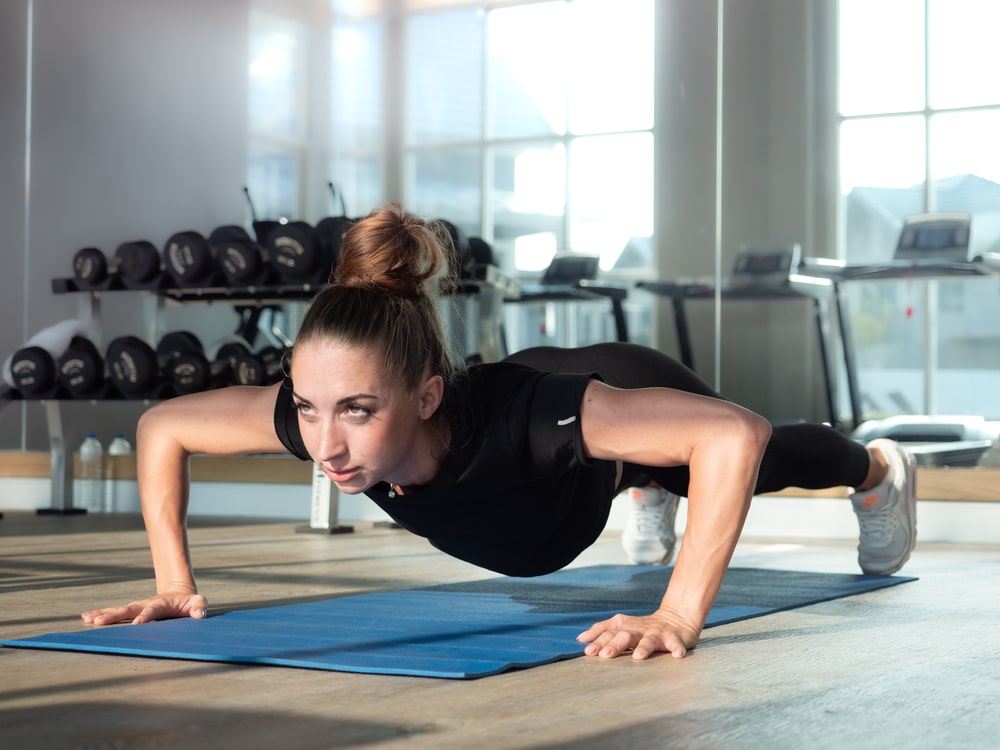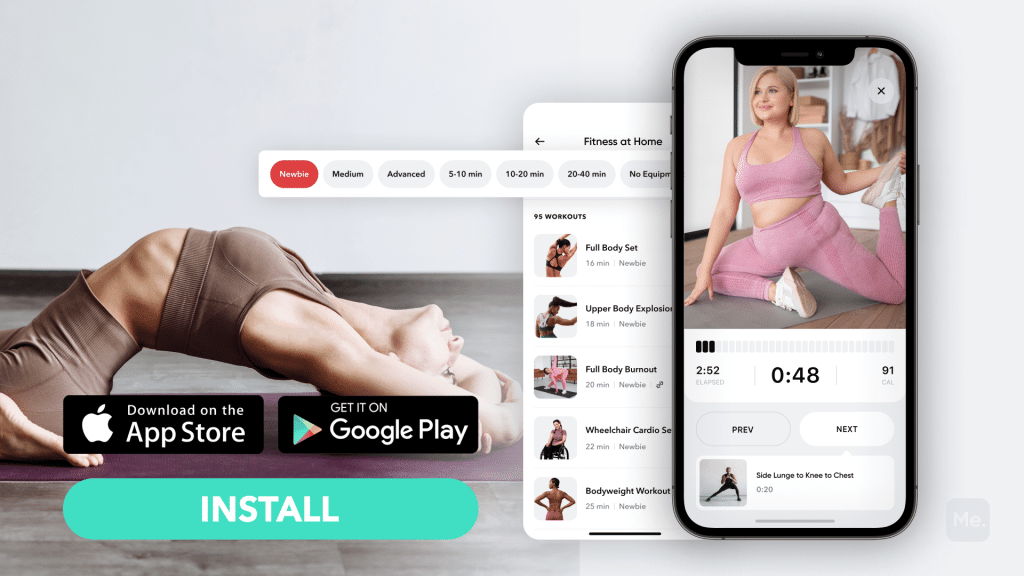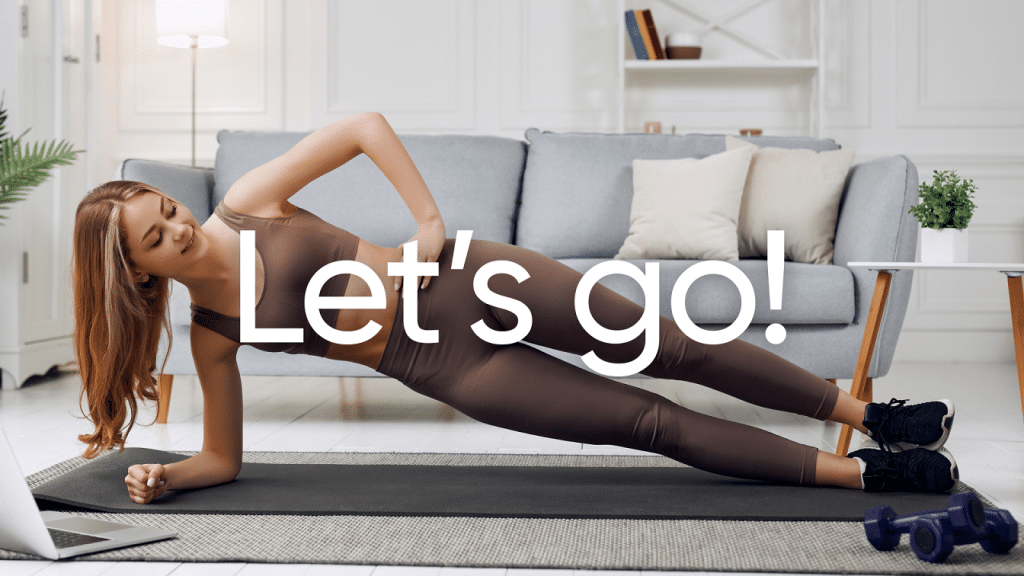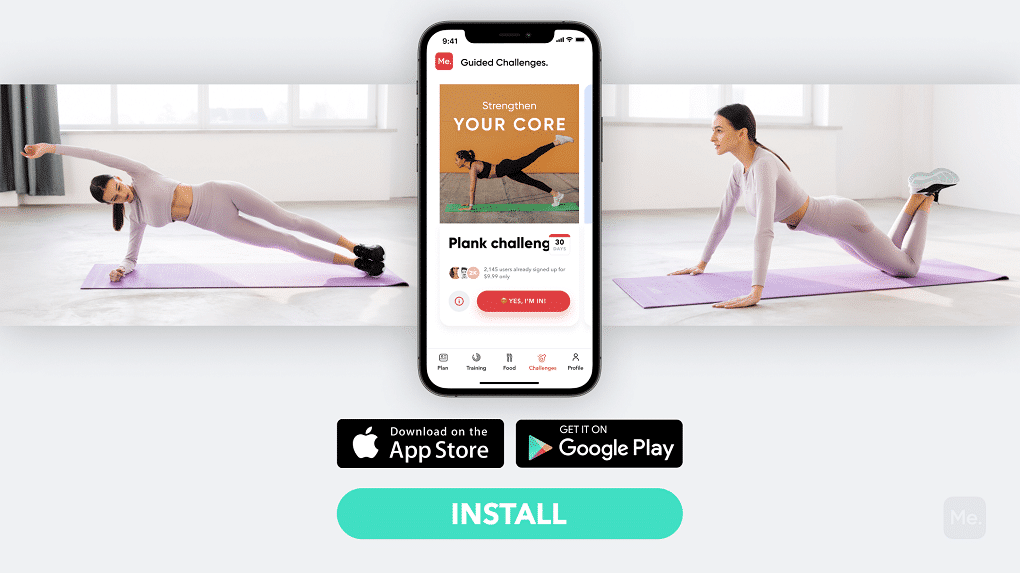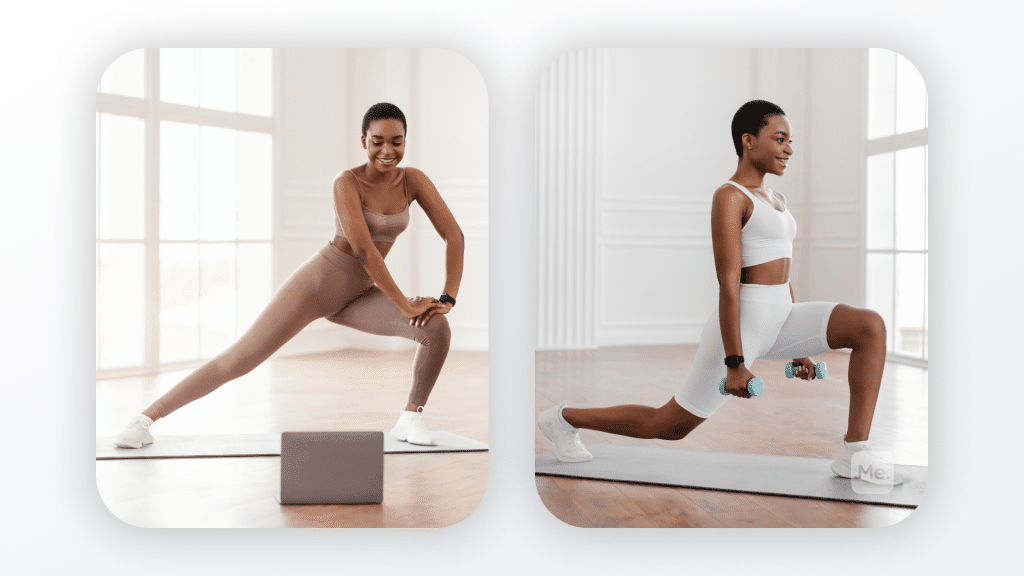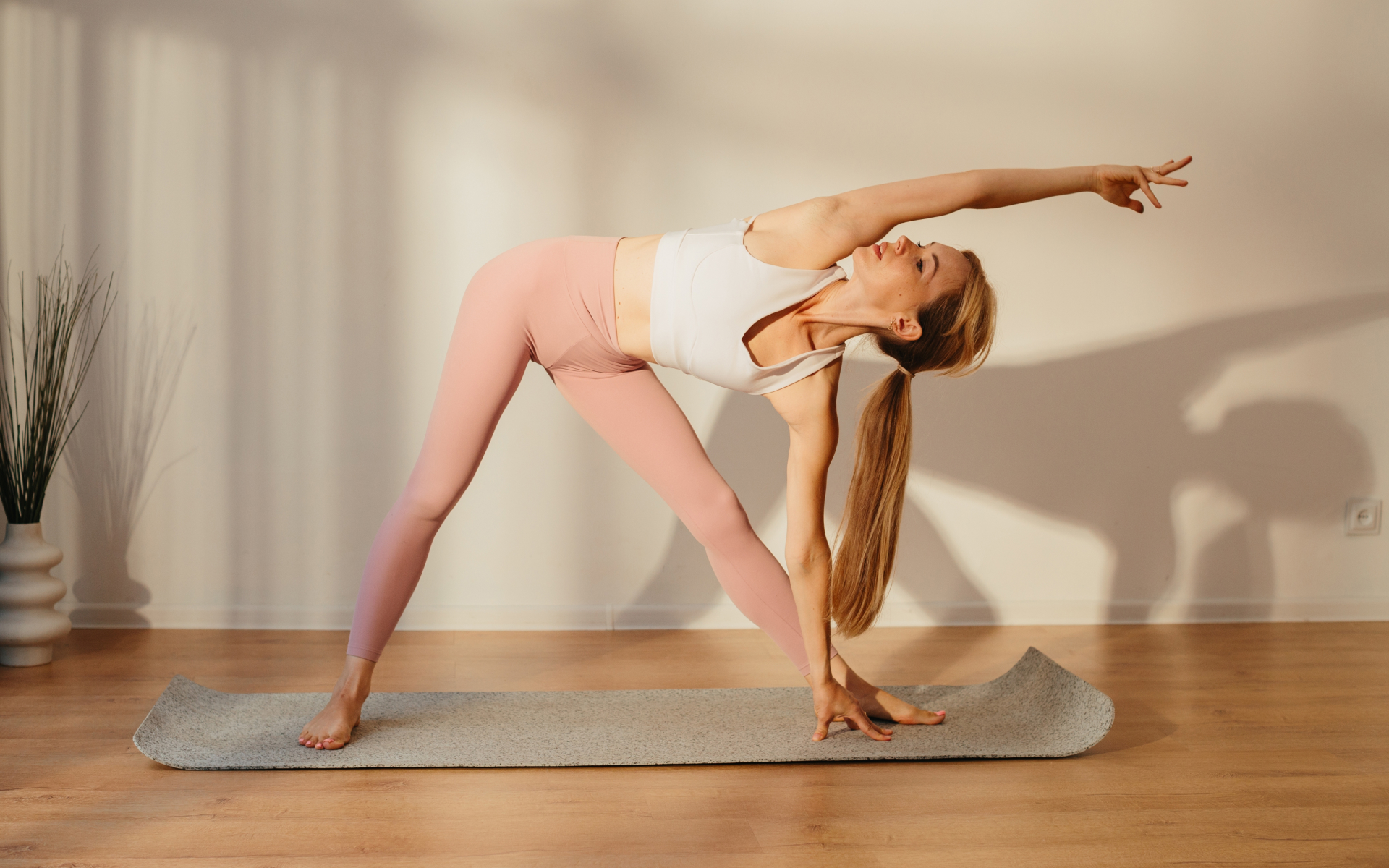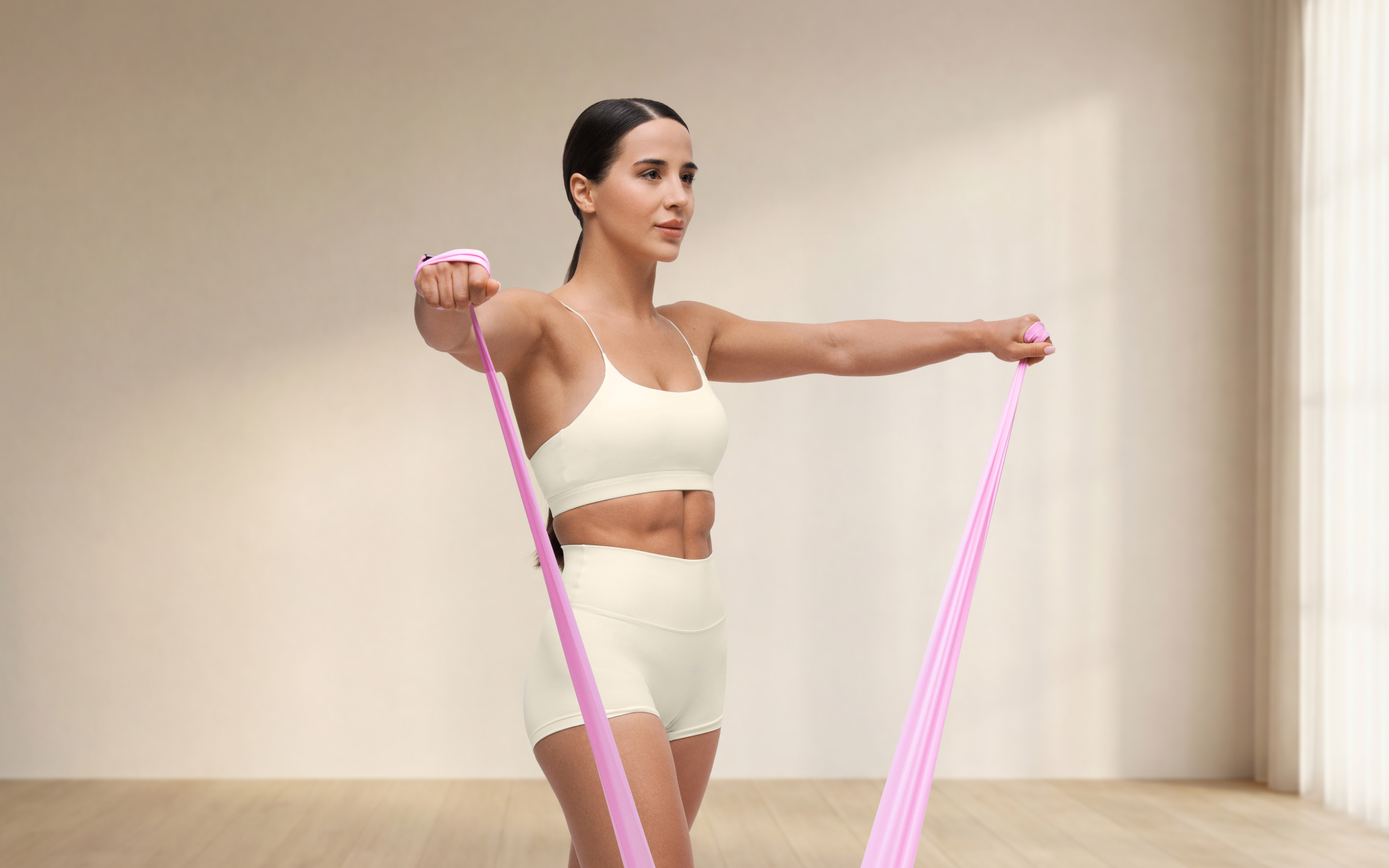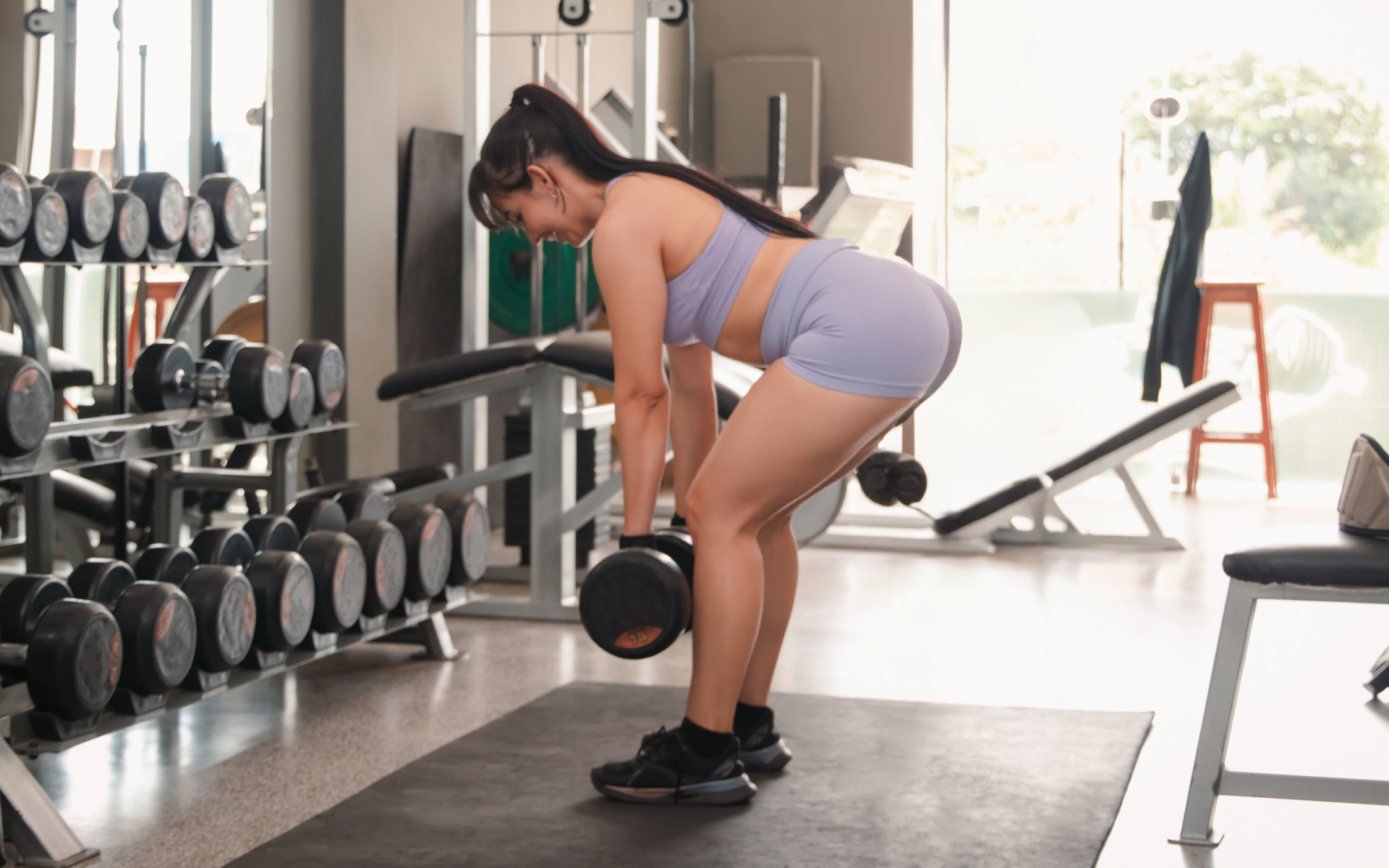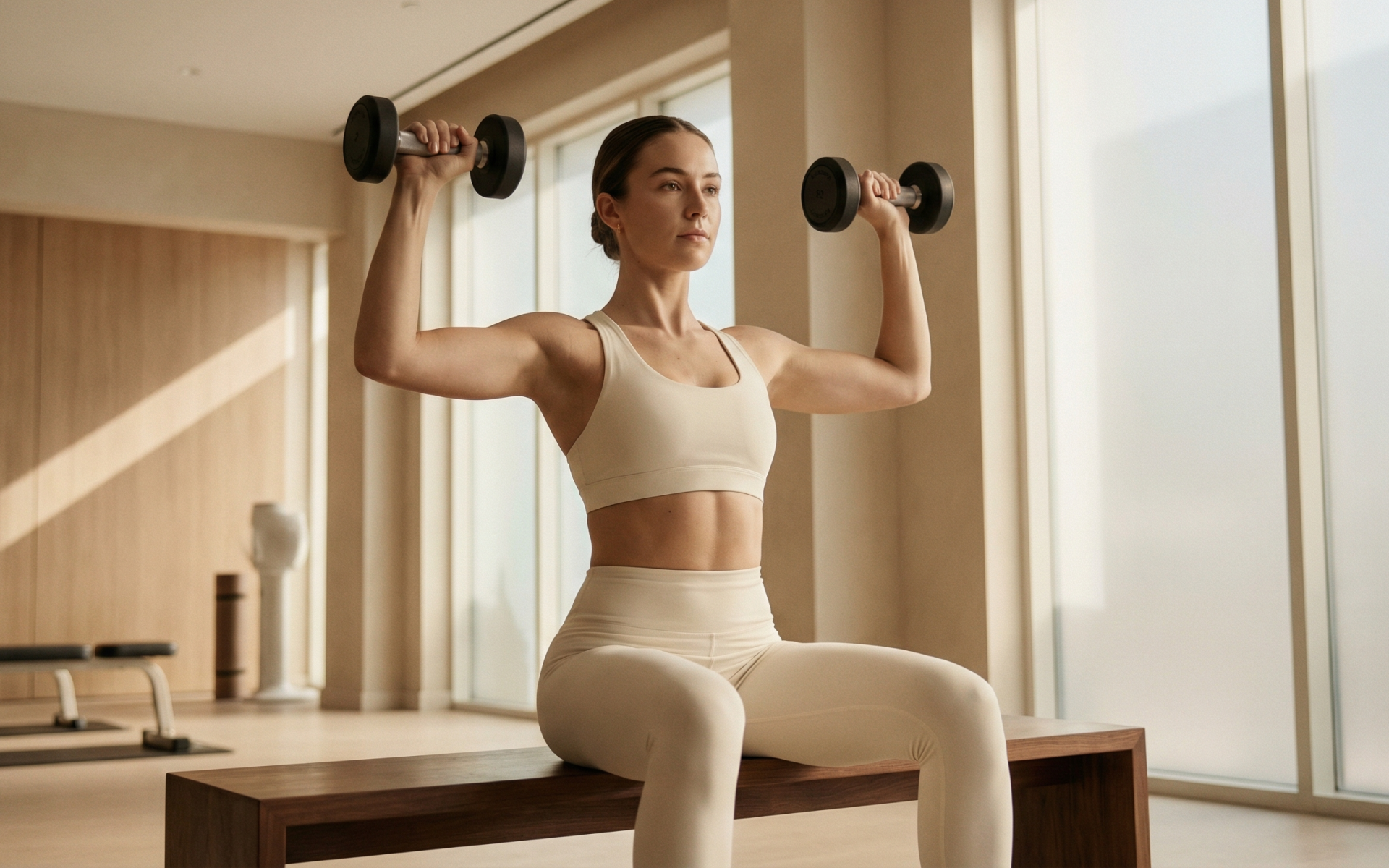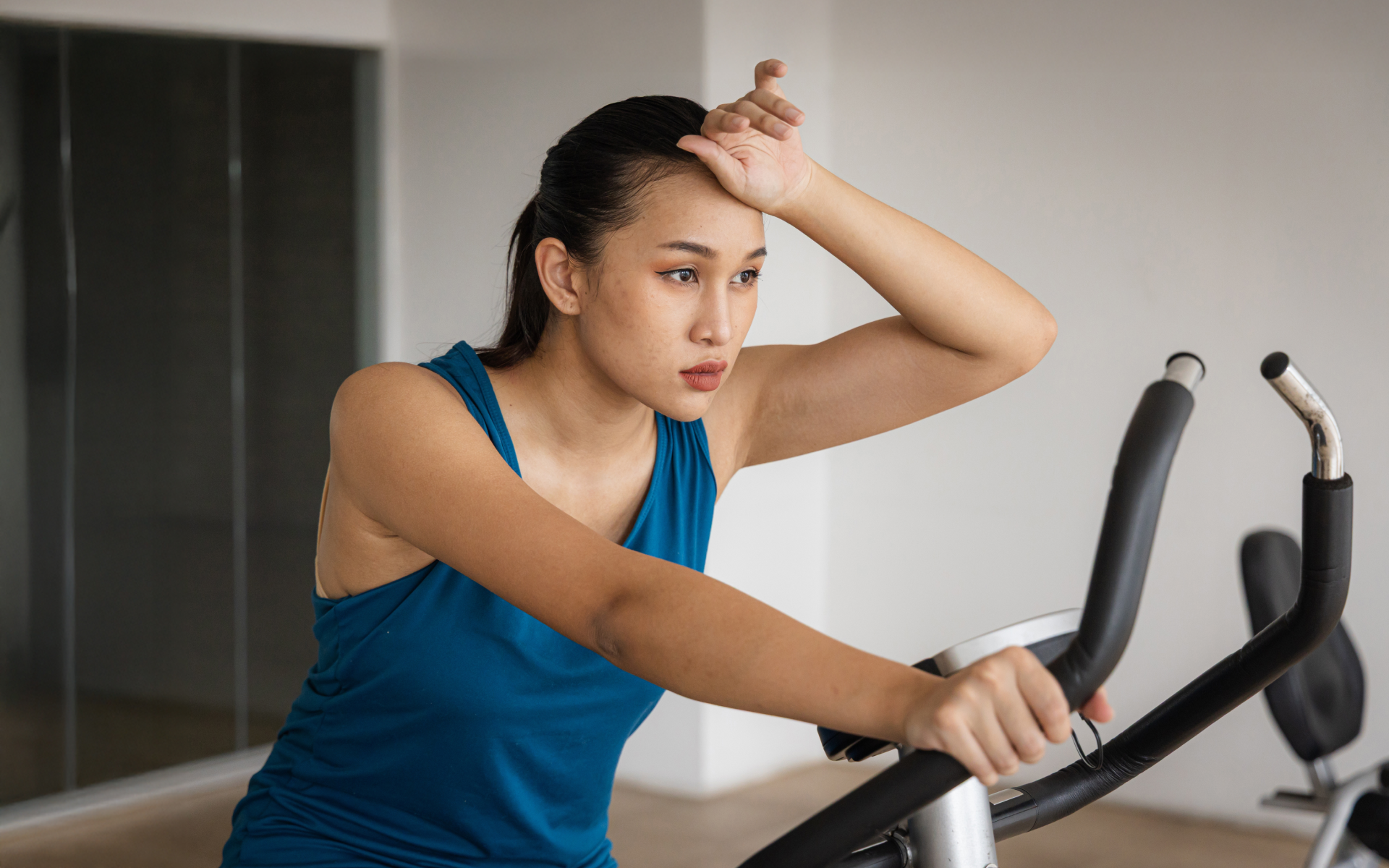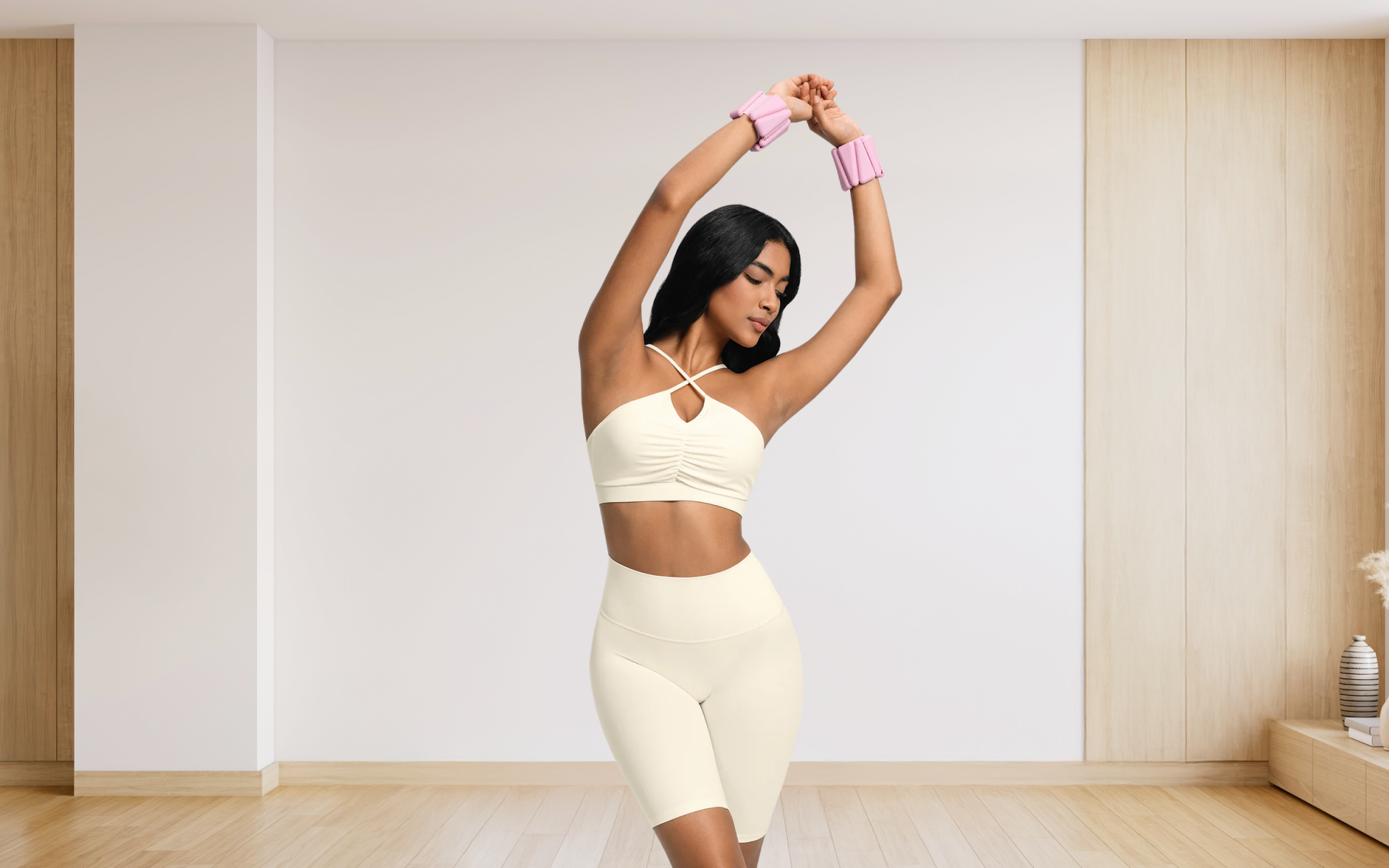Not many exercises have the combined benefits of cardio and strength training that plank jacks do. This simple movement provides an excellent way to get your heart rate up while also toning your core, arms, and legs. And, since they can be done anywhere without any equipment they’re the perfect exercise to add to your routine no matter if you’re home or on the go. Like most exercises there is a right way and a wrong way to do plank jacks. To get the most out of this movement and avoid injury, it’s important to do them correctly. Here are some tips on how to do plank jacks correctly, as well as some of the benefits you can expect from adding them to your workout routine.
Plank Jacks Exercise Benefits
The plank jack is a great addition to your strength training routine for several reasons:
Stronger Core
Plank jacks are a great way to strengthen your core (5). They are a variation of the traditional plank, and they work by engaging all of the muscles in your core. While doing this exercise, you’ll contract your abs, back, and hips to maintain a stable position.
You’ll also be using your arms and legs to jump, which will help to tone your muscles.
Most people believe that having a strong core is important for aesthetic reasons only. They think that six-pack abs are the epitome of fitness, and so they spend countless hours doing crunches in an attempt to achieve this goal.
While it is true that having visible abdominal muscles can be aesthetically pleasing, there are many other reasons why you should focus on building a stronger core.
Your core muscles include the muscles of your abdominals, back, and hips. These muscles work together to stabilize your spine and pelvis to allow you to move your arms and legs (4).
A strong core is essential for good posture, balance, and coordination. It also helps protect your spine and internal organs from injury (4).
Read More: Planks For Abs: Exercises That Will Set Your Core On Fire
Stronger Upper Body
The muscles in your upper body include your chest, back, shoulders, and arms. A strong upper body is important for many everyday activities such as carrying groceries, lifting a child, or moving furniture. It can also help improve your posture and reduce your risk of injuries.
Plank jacks are a great way to build strength in your upper body. They work your chest, shoulders, arms, and back all at once. They are also a great cardio workout and can help improve your endurance (3).
Prevent Back Pain
Lower back pain is a common issue that many people suffer from. It can be caused by a variety of things, such as poor posture, sitting for long periods, or lifting heavy objects. Back pain can range from mild to severe and can make it difficult to do everyday activities (1).
Core stabilization exercises, such as plank jacks, can help prevent or reduce back pain (8). These exercises strengthen the muscles in your back and abdominal area, which helps support your spine. Stronger core muscles mean better posture and less strain on your back.
Burn Calories And Fat
Aside from their muscle-strengthening benefits, plank jacks are also a great way to burn calories and fat.
This exercise is considered to be a moderate-intensity cardio workout, which means that you burn more calories than if you were doing a low-intensity workout such as walking.
Research on the benefits of cardiovascular exercise shows that aside from burning fat, it can help improve your heart health, lower your blood pressure, and reduce your risk of developing chronic diseases such as heart disease, stroke, and diabetes (7).
How many calories plank jacks burn will depend on your weight, intensity level, and how long you do the exercise.
However, one study found that a 155-pound person can burn approximately 252 calories in 30 minutes of doing moderate-intensity cardio exercises such as plank jacks (2).
If you wish to cinch your waist, tone up your bat wings, blast away the muffin top – our fitness app was created to cater to all your needs! BetterMe won’t give excess weight a chance!
How To Do A Plank Jack
- Step 1: Start in a plank position with your feet shoulder-width apart and your hands directly under your shoulders. Bend your elbows and lower your forearms onto the ground. Your tailbone should be slightly tucked so that your pelvis is perpendicular to the floor. Focus your gaze on the floor about a foot in front of you to help keep your neck in line with your spine.
- Step 2: Keeping your core engaged, jump your feet out to the side, landing with your feet wider than shoulder-width apart.
- Step 3: Jump your feet back together, returning to the starting position.
Engaging your core will help you to keep your body in a straight line and prevent your hips from sagging.
As you jump your feet out to the side, be sure to land softly on the balls of your feet. This will help to protect your joints and reduce the impact on your body.
Be careful not to move your feet too wide apart. Doing this can put a strain on your knees and hips.
How Many Reps Should You Do?
Perform reps for 20 seconds at a time, with 10 seconds of rest in between sets. Begin with 2-3 sets and work your way up to 5 sets as you get stronger.
Longer sets can fatigue your muscles and cause you to break form, which can lead to injuries.
Remember, quality is more important than quantity. If you can’t do the move with good form, it’s better to reduce the time or intensity level rather than trying to force your body to do more than it’s ready for.
If you’re new to exercise, start with shorter sets and slower jumps. As you get stronger and more comfortable with the move, you can increase the length of time and the intensity.
Plank Jack Regression
For some reason, you may be unable to do a full plank jack. Perhaps you have an injury or you’re not quite ready for this movement. Or, maybe you’re just starting and need to build up your strength and endurance first.
If a full plank jack is too difficult, there are a few ways that you can modify the exercise to make it easier.
One way is to master the regular stationary plank before progressing to the plank jack. Once you can hold a plank for 30 seconds or more, you’ll likely be ready to move on to the next level.
If you want to give the plank jack a try but are concerned about jumping, start by doing the plank jack toe tap.
To do this:
- Start in a plank position with your feet shoulder-width apart.
- Keeping your core engaged, lift your right foot off the ground and tap it lightly on the floor next to your left foot.
- Return your right foot to the starting position, then repeat with your left foot.
- Alternate sides until you’ve done 10-15 reps.
Read More: Are Planks Good For Abs? The Truth About This Popular Workout
Plank Jack Progression
As you become more confident and comfortable with the plank jack, there are a few ways that you can make the exercise more challenging.
One way is to increase your speed. This will not only make the exercise more challenging but will also increase the number of calories that you burn.
Another way to make the plank jack more difficult is by increasing the length of the set. Instead of doing 20 seconds at a time, try 30 or even 45 seconds. Just be sure to take a break in between sets so that you don’t overdo it.
You can also make the plank jack more challenging by doing it in conjunction with other exercises. For example, try doing a plank jack set followed by a jump squat set.
Incorporating Plank Jacks Into Your Workouts
You can incorporate plank jacks into your workouts in a variety of ways.
In Your Core Strength Workout
A good core workout only needs 4 or 5 different exercises, so there’s plenty of room to add in a few plank jacks. Here is a sample workout for a sculpted core:
- Plank jacks – 15 reps, 20 seconds each with 10 seconds of rest in between sets
- Straight leg toe touch – 15 reps on each side
- Hip Dips – 16 reps in total
- Oblique side bends – 15 reps on each side
- Rest for 1 minute, then repeat the circuit 2-3 more times.
In Your HIIT Workout
High-Intensity Interval Training (HIIT) workouts are a great way to get your heart rate up and burn calories. And, they can be done in a relatively short amount of time.
Here is a HIIT workout that incorporates plank jacks:
- Warm up for 3 minutes with light cardio like jogging or walking
- 30 seconds of plank jacks, followed by 30 seconds of rest
- 1 minute of jumping jacks, followed by 1 minute of rest
- 45 seconds of mountain climbers, followed by 15 seconds of rest
- 30 seconds of sprints, followed by 2 minutes of walking or jogging
- Repeat the circuit 2-3 more times.
In Your Upper Body Workout
Plank jacks can also be incorporated into an upper-body workout. For example, try doing a set of push-ups in between each set of plank jacks.
Here is a sample upper body workout that includes plank jacks:
- 3 sets of 12 reps of overhead presses
- 30 seconds of plank jacks
- 3 sets of 12 reps of lat pull-downs
- 30 seconds of plank jacks
- 3 sets of 12 reps of chest press
- 30 seconds of plank jacks
- Rest for 1-2 minutes, then repeat the circuit.
BetterMe is your fast-track ticket to a long-lasting weight loss! Tailor your fitness journey and maximize your results with just a couple of swipes!
Plank Jack Safety Tips
To get the most out of this exercise without injury, there are a few things that you should keep in mind.
First, be sure to warm up before doing any type of jump exercises like plank jacks. A good warm-up will not only help to prevent injuries but will also increase your heart rate and get your muscles ready for the workout ahead (6).
Second, be sure to engage your core throughout the exercise. This will help to protect your lower back and prevent injuries.
Third, keep your body in a straight line and avoid sagging in the middle. This will help to target your abs and obliques more effectively.
Finally, be sure to land lightly on your feet and keep your knees soft when you jump. This will help to absorb the impact and prevent injuries.
Always listen to your body and stop the exercise if you feel any pain.
Avoid this exercise if you have any lower back, knee, or hip pain.
If you have any other health concerns, please consult your doctor before starting this or any other exercise program.
The Bottom Line
There are many benefits to incorporating plank jacks into your workout routine. Plank jacks are a great way to get your heart rate up and to challenge your whole body. They’re also relatively easy to do and can be modified to meet your fitness level.
Remember, when doing any type of plyometric exercise, it’s important to listen to your body and to take things slowly at first. Be sure to warm up before exercise and cool down afterwards.
Get your personalized
meal plan!
DISCLAIMER:
This article is intended for general informational purposes only and does not serve to address individual circumstances. It is not a substitute for professional advice or help and should not be relied on for making any kind of decision-making. Any action taken as a direct or indirect result of the information in this article is entirely at your own risk and is your sole responsibility.
BetterMe, its content staff, and its medical advisors accept no responsibility for inaccuracies, errors, misstatements, inconsistencies, or omissions and specifically disclaim any liability, loss or risk, personal, professional or otherwise, which may be incurred as a consequence, directly or indirectly, of the use and/or application of any content.
You should always seek the advice of your physician or other qualified health provider with any questions you may have regarding a medical condition or your specific situation. Never disregard professional medical advice or delay seeking it because of BetterMe content. If you suspect or think you may have a medical emergency, call your doctor.
SOURCES:
- Back Pain – StatPearls – NCBI Bookshelf (2022, ncbi.nlm.nih.gov)
- Calories burned in 30 minutes of leisure and routine activities – Harvard Health (2021, health.harvard.edu)
- Core Stability Exercise Principles (2008, journals.lww.com)
- Effects of 8-week core training on core endurance and running economy (2019, journals.plos.org)
- Effects of High Intensity Plank Exercise on Physical Fitness and Immunocyte Function in a Middle-Aged Man: A Case Report (2021, mdpi.com)
- Effects of Warming-up on Physical Performance: A Systematic Review With Meta-analysis (2010, journals.lww.com)
- Exercise and Cardiovascular Health (2003, ahajournals.org)
- Tolerability and Muscle Activity of Core Muscle Exercises in Chronic Low-back Pain (2019, mdpi.com)
